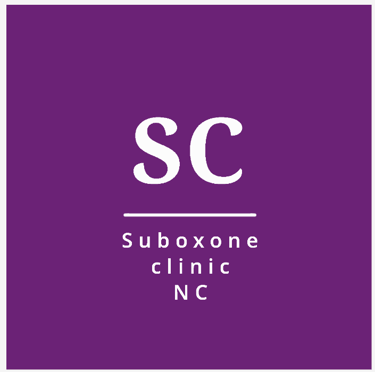Comprehensive Guide to Finding an Emergency Suboxone Clinic Near You
Introduction
Opioid addiction is a pressing public health issue, affecting millions of individuals and families worldwide. Suboxone, a medication combining buprenorphine and naloxone, has emerged as a pivotal treatment for opioid dependence. Its ability to reduce withdrawal symptoms and cravings has made it a cornerstone in addiction therapy. For those in urgent need, finding an "emergency Suboxone clinic near me" can be a lifesaver. This article will provide a thorough guide on how to locate an emergency Suboxone clinic, what to expect during your visit, and the benefits of seeking timely treatment.
Understanding Suboxone and Its Role in Opioid Addiction Treatment
What is Suboxone?
Suboxone is a prescription medication used to treat opioid addiction. It combines two active ingredients:
Buprenorphine: A partial opioid agonist that helps alleviate withdrawal symptoms and cravings.
Naloxone: An opioid antagonist that helps prevent misuse by causing withdrawal symptoms if the medication is injected.
How Does Suboxone Work?
Suboxone works by binding to the same receptors in the brain that opioids target. Buprenorphine partially stimulates these receptors, reducing withdrawal symptoms and cravings without producing the intense high associated with other opioids. Naloxone, on the other hand, serves as a deterrent to misuse, as it can precipitate withdrawal if administered improperly.
Benefits of Suboxone
Reduces Withdrawal Symptoms: Helps manage the severe physical symptoms associated with opioid withdrawal.
Decreases Cravings: Reduces the intense desire to use opioids, aiding in relapse prevention.
Low Potential for Abuse: The inclusion of naloxone helps discourage misuse.
Improves Treatment Retention: Patients on Suboxone are more likely to stay in treatment compared to those who undergo detoxification alone.
The Importance of Emergency Suboxone Clinics
Why Seek an Emergency Suboxone Clinic?
Emergency Suboxone clinics provide immediate access to this crucial medication, addressing urgent needs for those experiencing acute withdrawal or at high risk of relapse. These clinics are vital for:
Immediate Relief: Offering quick intervention to manage withdrawal symptoms.
Crisis Management: Providing support during critical moments, such as a potential overdose or severe relapse.
Continuity of Care: Ensuring that patients receive consistent treatment and support.
Signs You Need Emergency Suboxone Treatment
Severe Withdrawal Symptoms: Intense physical and psychological symptoms that are difficult to manage without medication.
High Risk of Relapse: Strong cravings and temptation to use opioids again.
Overdose Risk: Recent overdose or high risk due to ongoing opioid use.
Lack of Access to Regular Care: Inability to get an appointment with a regular healthcare provider.
How to Find an Emergency Suboxone Clinic Near You
Online Directories and Resources
SAMHSA Treatment Locator: The Substance Abuse and Mental Health Services Administration (SAMHSA) provides a comprehensive treatment locator tool on their website, which allows users to search for Suboxone clinics by zip code or city.
Local Health Department Websites: Many state and local health departments offer directories of nearby addiction treatment services, including emergency Suboxone clinics.
Addiction Recovery Websites: Websites like Psychology Today and Recovery.org list treatment providers, including those offering emergency services.
Contacting Hotlines and Support Services
SAMHSA National Helpline: 1-800-662-HELP (4357) offers free, confidential information and referral services for individuals seeking treatment.
Local Crisis Hotlines: Many areas have local hotlines specifically for substance use crises.
Community Health Centers: Local community health centers often provide referrals and information on nearby emergency services.
Utilizing Telemedicine Services
In recent years, telemedicine has become a valuable resource for those seeking addiction treatment. Telemedicine services can connect patients with healthcare providers who can prescribe Suboxone and offer follow-up care, often more quickly than in-person visits.
Word of Mouth and Community Resources
Support Groups: Organizations like Narcotics Anonymous (NA) and other support groups often have information on local emergency treatment options.
Pharmacies: Pharmacists can sometimes provide information on nearby clinics and treatment providers.
What to Expect at an Emergency Suboxone Clinic
Initial Assessment and Evaluation
When you first arrive at an emergency Suboxone clinic, you will undergo a thorough assessment to determine the severity of your addiction and the appropriate treatment plan. This typically includes:
Medical History Review: Understanding your past and current use of opioids, as well as any other medical conditions.
Physical Examination: Checking for any immediate health concerns related to opioid use or withdrawal.
Psychological Assessment: Evaluating mental health status and any co-occurring disorders.
Treatment Planning and Medication Induction
After the initial assessment, the healthcare provider will develop a personalized treatment plan. This usually involves:
Medication Induction: Starting Suboxone under medical supervision to ensure it is effective and well-tolerated.
Dosage Adjustment: Finding the optimal dosage to manage withdrawal symptoms and cravings.
Counseling and Support Services
Effective treatment for opioid addiction often includes counseling and support services, such as:
Individual Counseling: Working one-on-one with a therapist to address the psychological aspects of addiction.
Group Therapy: Participating in therapy sessions with others who are also in recovery.
Family Counseling: Involving family members in the treatment process to provide support and improve communication.
Follow-Up Care and Long-Term Support
Emergency Suboxone clinics also emphasize the importance of follow-up care. This might include:
Regular Check-Ins: Scheduled appointments to monitor progress and adjust treatment as needed.
Referral to Ongoing Care: Connecting patients with long-term treatment providers for continuous support.
Support Groups: Encouraging participation in support groups to maintain recovery.
Benefits of Seeking Emergency Suboxone Treatment
Immediate Relief and Stabilization
One of the most significant benefits of emergency Suboxone clinics is the immediate relief they provide. By quickly addressing withdrawal symptoms and cravings, these clinics can stabilize patients, reducing the risk of relapse or overdose.
Access to Comprehensive Care
Emergency clinics offer a range of services beyond medication, including counseling, support groups, and referrals to other healthcare providers. This comprehensive approach ensures that patients receive holistic care tailored to their needs.
Increased Chances of Long-Term Recovery
By providing timely and effective treatment, emergency Suboxone clinics can significantly increase the chances of long-term recovery. Patients who receive prompt care are more likely to stay engaged in treatment and maintain their sobriety.
Overcoming Barriers to Accessing Emergency Suboxone Treatment
Stigma and Misconceptions
Stigma and misconceptions about addiction and medication-assisted treatment (MAT) can prevent individuals from seeking help. Education and advocacy are crucial in breaking down these barriers and encouraging more people to seek the treatment they need.
Financial and Insurance Challenges
Cost and insurance coverage can also be significant barriers. Many emergency Suboxone clinics offer sliding scale fees, payment plans, or assistance with insurance paperwork to help make treatment more accessible.
Geographic and Transportation Issues
For those in rural or underserved areas, geographic and transportation challenges can make accessing treatment difficult. Telemedicine and mobile treatment units are innovative solutions that can help bridge these gaps.
Conclusion
Finding an "emergency Suboxone clinic near me" can be a critical step in overcoming opioid addiction. These clinics offer immediate relief, comprehensive care, and increased chances of long-term recovery. By understanding the resources available and knowing what to expect, individuals can take proactive steps toward a healthier, substance-free life.
Opioid addiction is a complex and challenging condition, but with the right support and treatment, recovery is possible. If you or someone you know is struggling with opioid dependence, don’t hesitate to seek help. Emergency Suboxone clinics are equipped to provide the urgent care needed to manage withdrawal symptoms, reduce cravings, and set the foundation for lasting recovery.
Additional Resources and References
For further information and assistance, consider the following resources:
Substance Abuse and Mental Health Services Administration (SAMHSA): Offers a treatment locator tool and a national helpline.
National Institute on Drug Abuse (NIDA): Provides comprehensive information on opioid addiction and treatment options.
American Society of Addiction Medicine (ASAM): Offers resources and guidelines for addiction treatment providers.
FAQs
1. What is the difference between Suboxone and other opioid addiction treatments? Suboxone combines buprenorphine and naloxone, offering a unique approach that reduces withdrawal symptoms and cravings while deterring misuse. Unlike methadone, which is a full opioid agonist, Suboxone's partial agonist properties make it safer and less likely to be abused.
2. How quickly can I start Suboxone treatment at an emergency clinic? Many emergency clinics can start Suboxone treatment on the same day, following a thorough assessment to determine the appropriate dosage and treatment plan.
3. Is Suboxone treatment covered by insurance? Suboxone treatment is covered by many insurance plans, but coverage can vary. It's essential to check with your insurance provider and the clinic to understand your benefits and any out-of-pocket costs.
4. Can I take Suboxone while still using opioids? It is crucial to be in moderate withdrawal before starting Suboxone to avoid precipitated withdrawal. The clinic will provide guidelines on when to take the first dose based on your opioid use.
5. What should I bring to my first appointment at an emergency Suboxone clinic? Bring a photo ID, insurance information, a list of current medications, and any relevant medical records. Be prepared to discuss your medical history and substance use in detail.
By addressing opioid addiction with urgency and compassion, emergency Suboxone clinics play a vital role in the fight against this epidemic. Their services not only save lives but also pave the way for long-term recovery and improved quality of life.


